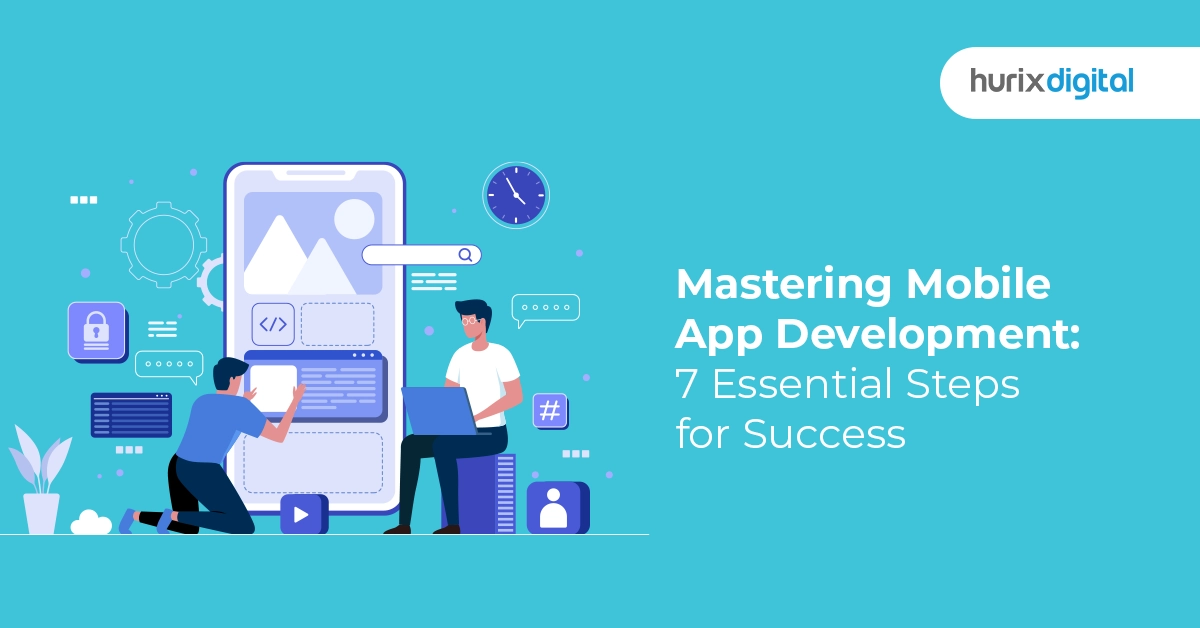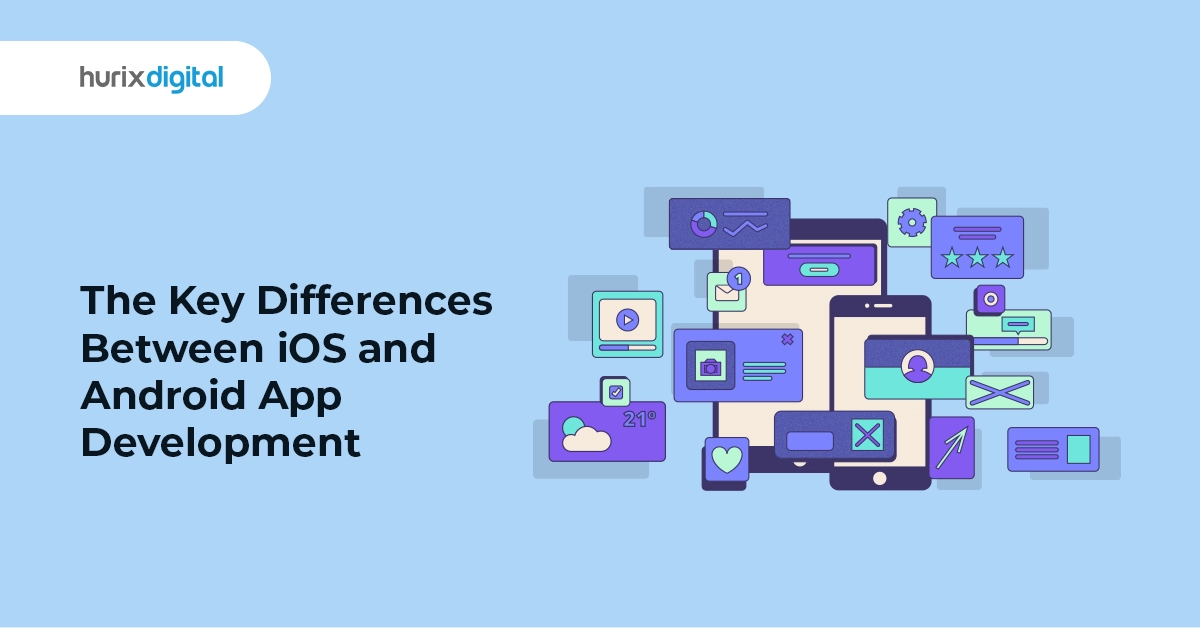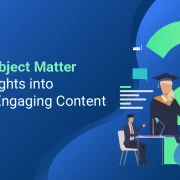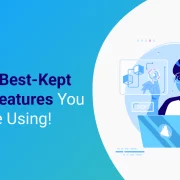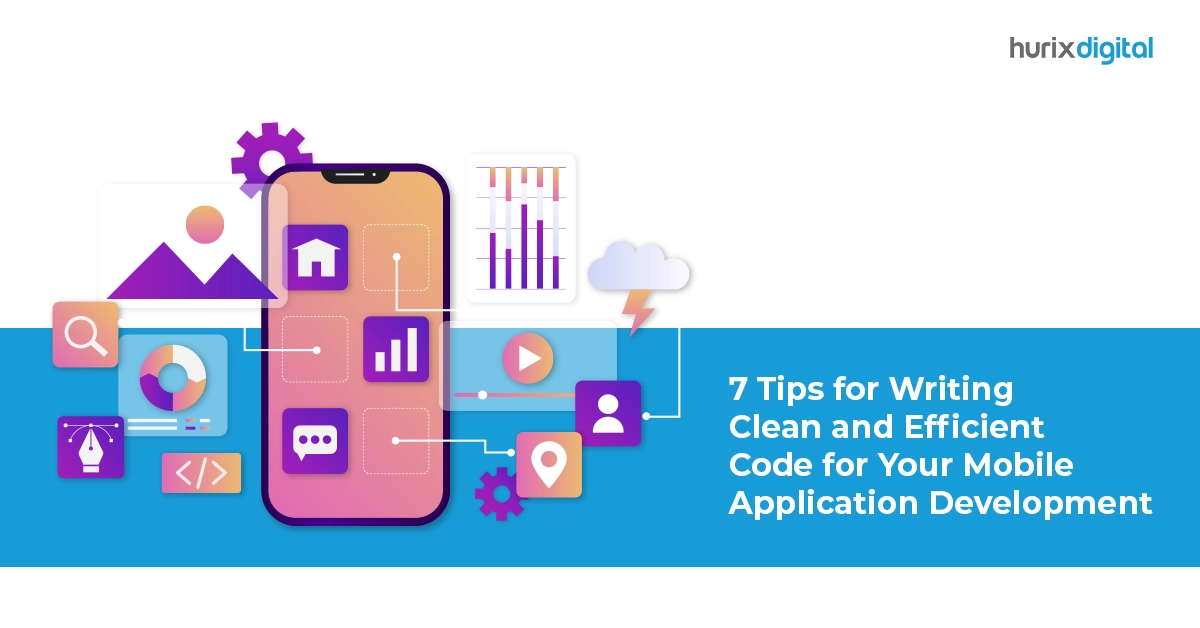
7 Tips for Writing Clean and Efficient Code for Your Mobile Application Development
Summary
Discover seven tips for writing clean and efficient code in mobile app development. This article provides best practices for optimizing code quality and performance.
Having a successful app goes beyond captivating design and innovative features. The foundation of a robust and user-friendly app lies in clean and efficient code. Clean code is not just aesthetically pleasing; it translates to a smooth development process, easier maintenance, and a seamless user experience.
We will walk you through the importance of clean and efficient code in mobile application development. Whether it’s about how to develop an Android app or an iPhone app, we have seven handy tips you can implement. Learn how to streamline your coding workflow, enhance performance, and ensure your mobile app thrives in the competitive app market.
Table of Contents:
- The Significance of Clean and Efficient Code in Mobile Application Development
- 7 Tips for Writing Clean and Efficient Code for Your Mobile App
- Conclusion
The Significance of Clean and Efficient Code in Mobile Application Development
Clean and efficient code offers a multitude of benefits for mobile app development:
- Enhanced Maintainability: Well-written code is easier to understand and modify, allowing developers to introduce new features or fix bugs efficiently. This is particularly crucial as apps evolve and require ongoing maintenance.
- Reduced Development Time: Clean code promotes better code comprehension, minimizing time spent deciphering complex structures. This leads to a faster development process and quicker time-to-market for your app.
- Improved Debugging: Clean code is easier to debug, as the logic is clear and well-organized. This translates to faster issue identification and resolution, ensuring a smooth user experience.
- Enhanced Team Collaboration: Clean code fosters better communication and collaboration within development teams. When code is easy to understand, developers can work together more effectively.
- Optimized Performance: Clean and efficient code typically results in a more performant app. By avoiding unnecessary redundancies and optimizing resource usage, your app runs smoother and delivers a faster user experience.
By prioritizing clean code, developers lay the foundation for a successful mobile app, ensuring long-term sustainability and user satisfaction.
Also Read: 7 Key Steps to Successful Mobile App Development Process
7 Tips for Writing Clean and Efficient Code for Your Mobile App
Writing clean and efficient code is the foundation for a successful mobile app. It ensures your app development runs smoothly, is easy to maintain, and delivers a delightful user experience. Here are 7 key tips to elevate the quality and efficiency of your mobile app’s code:
1. Prioritize Readability and Maintainability
Writing clear and concise code is important while you maintain consistency in formatting and simplify complex functions. You must strive for simplicity and avoid overly complex logic structures and convoluted algorithms. Instead, you can use clear variable names that reflect their purpose (e.g., ‘userName’ instead of ‘u’). When necessary, enhance readability with meaningful comments that explain non-obvious logic but avoid over-commenting in well-structured code.
Maintain a consistent style throughout your codebase for indentation, spacing, and formatting. This improves readability and makes navigating the code much easier for you and future developers. Don’t hesitate to break large chunks of code into smaller, well-defined functions with clear purposes. This promotes modularity, improves readability, and helps with troubleshooting.
2. Know the Art of Naming Conventions
Utilize descriptive variable and function names that accurately reflect their purpose. This eliminates the need for excessive commenting and makes it instantly clear what each piece of code does.
For example, ‘calculateTotalCost’ is much more understandable than ‘calcTotal.’ Adhere to a consistent naming convention throughout your entire app. This ensures predictability and makes the code easier to navigate for you and other developers.
3. Leverage Code Comments Strategically
Documenting non-obvious logic and design choices is essential. Use comments to explain complex algorithms or logic that might not be immediately clear at first glance. However, avoid over-commenting well-structured code that is already self-documenting.
Always clarify assumptions and dependencies. Document any assumptions made within the code or external dependencies it relies upon. This aids future developers in understanding the code’s context and potential limitations.
4. Apply Modularization and Reusability
Organize your code into well-defined modules that encapsulate specific functionalities. This promotes code reuse, reduces redundancy, and simplifies maintenance. Think of your code as building blocks – the more reusable blocks you have, the easier it is to construct new features.
Modern mobile development platforms for iPhone and Android apps offer vast libraries and frameworks that provide pre-built, well-tested code components. Utilize these resources to avoid reinventing the wheel. Focus your efforts on your app’s unique functionalities and use libraries for common tasks like networking or image loading.
5. Use Effective Design Patterns
Make it a practice to identify common programming problems and solutions. Design patterns offer established and proven solutions to recurring programming challenges. Learn and implement relevant design patterns to enhance code structure, maintainability, and scalability.
Don’t force-fit a design pattern into your code. Carefully analyze the problem you’re trying to solve and select the pattern that best addresses the specific challenge.
6. Implement Unit Testing
Unit testing involves creating automated tests for individual functions or modules within your code. It helps you to isolate and verify the functionality of each code unit independently. Having unit tests in place catches bugs early in the development cycle, leading to a more robust and reliable app.
It also helps identify bugs and potential issues early in the development cycle. This leads to a more robust and reliable app, minimizing crashes and unexpected behavior. With unit tests in place, you can refactor code with greater confidence, knowing that the underlying functionality remains intact. This promotes agility and simplifies future maintenance efforts. You can make changes to your codebase without worrying about breaking something else.
7. Employ Performance Optimization Techniques
Utilize profiling tools to identify areas of your code that consume excessive resources or slow down app performance. These tools pinpoint where your app might be struggling, allowing you to optimize those sections.
Minimize unnecessary memory allocations and optimize resource handling to ensure your app runs smoothly, even on devices with limited resources. A well-optimized app uses resources efficiently, leading to a better user experience. By implementing these performance optimization tips, you ensure your mobile app delivers a responsive and enjoyable user experience on all devices.
Also Read: Mobile App Development vs. Responsive Website Design – Which is the Right Approach?
Conclusion
Crafting clean and efficient code forms the cornerstone of successful mobile application development. This translates to a delightful user experience that keeps users engaged and coming back for more.
A well-crafted codebase is not a luxury; it’s a necessity. Clean code ensures your app is adaptable and efficient and can evolve alongside your business needs. You will be able to add new features quickly and confidently, knowing your codebase is a well-oiled machine. That’s the power of clean code.
At Hurix Digital, we are passionate about building beautiful and functional mobile apps. Our team of experienced developers understands the importance of clean code and can help you craft a codebase that is a joy to work with and lays the foundation for long-term success. Contact us today to turn your mobile app vision into reality.

Currently serving as the Vice President of Technology Delivery Operations at HurixDigital, a prominent global provider of digital content and technology solutions for publishers, corporations, and educational institutions. With over 16 years of experience spanning EdTech and various domains, I hold certification as a SCRUM Product Owner (CSPO). My expertise includes operations, finance, and adept people management skills.

